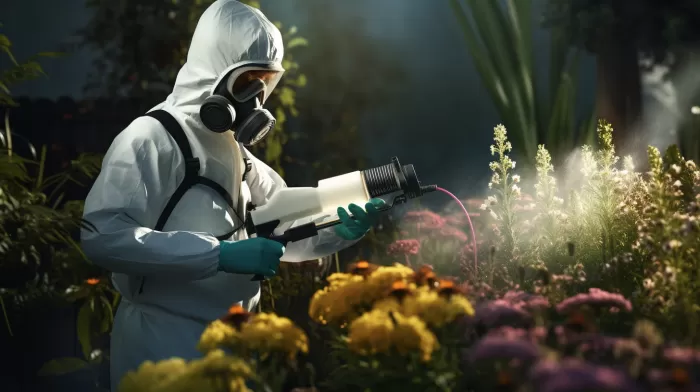Did you know that using certain household chemicals can potentially cause brain damage and increase your chances of developing Parkinson’s disease? That’s right, a review of over 100 studies from around the world has found a link between the use of various bug and weed killers, solvents, and an increased risk of Parkinson’s.
What to Avoid
The chemicals in question are often found in pesticides, like bug and weed killers, commonly used around the house and yard. In the study, researchers discovered that exposure to these pesticides is associated with a 33% to 80% increase in the risk of developing Parkinson’s disease. In controlled studies, exposure to the weed killer paraquat, as well as the fungicides maneb and mancozeb was found to double the risk of developing the disease.
If you’re concerned about the potential health risks, be sure to check the labels on any products you’re using in or around your home. Many pest control and lawn care products contain these harmful chemicals.
But it’s not just pesticides that are problematic. The study also revealed a link between people living in rural areas or working in agriculture and an increased risk of developing Parkinson’s disease. It’s believed that these individuals are more likely to be exposed to harmful chemicals through their work or by consuming well water.
Dose-Response Relationship
One key finding from these studies was that the risk of Parkinson’s seems to increase in a dose-response manner. This means that the longer someone is exposed to these harmful chemicals, the greater their risk of disease becomes.
Italian researcher Emanuele Cereda noted that while they did not examine the specific type of exposure, such as inhalation or skin absorption, or the method of application, their study suggests that the risk increases as exposure duration increases.
Safer Alternatives
If you’re now considering ditching the toxic chemicals from your home and lifestyle, there are plenty of safer alternatives available. For pest control, opt for organic or natural options such as diatomaceous earth, neem oil, or essential oils. In the garden, you can tackle weeds the old-fashioned way — by manually pulling them out or using a mix of vinegar and water as a natural spray.
Additionally, if you live in a rural area, consider having your well water tested for contaminants and, if necessary, invest in a water filtration system.
Importance of Awareness
It’s essential to be aware of the potential dangers lurking in our homes and daily lives. With the knowledge of the risks associated with these chemicals and the alternatives available, you can take steps to protect yourself and your loved ones from harm.
If you’re concerned about Parkinson’s risks, keep these factors in mind and try to minimize your exposure to harmful chemicals, both in your home and at work.
Further Research
While the review on these studies has shown a strong link between exposure to certain chemicals and an increased risk of Parkinson’s disease, further research is needed to better understand the specific mechanisms at work.
It’s essential that more work be done to strengthen the evidence of this link and provide a more comprehensive understanding of the risks involved. This will help inform regulations and policies regarding chemical use and provide accurate guidance to individuals looking to reduce their exposure.
Final Thoughts
In conclusion, it’s clear that we need to be more conscious of the products we use in our homes and the risks they may pose to our health. By being proactive and making changes, you can reduce your risk of chemical exposure, protect your brain health, and help minimize the risk of developing Parkinson’s disease.
Remember to always read the labels on products, seek out safer alternatives, and stay informed about the latest research findings. Taking these steps is essential for maintaining good health, both today and for years to come.



